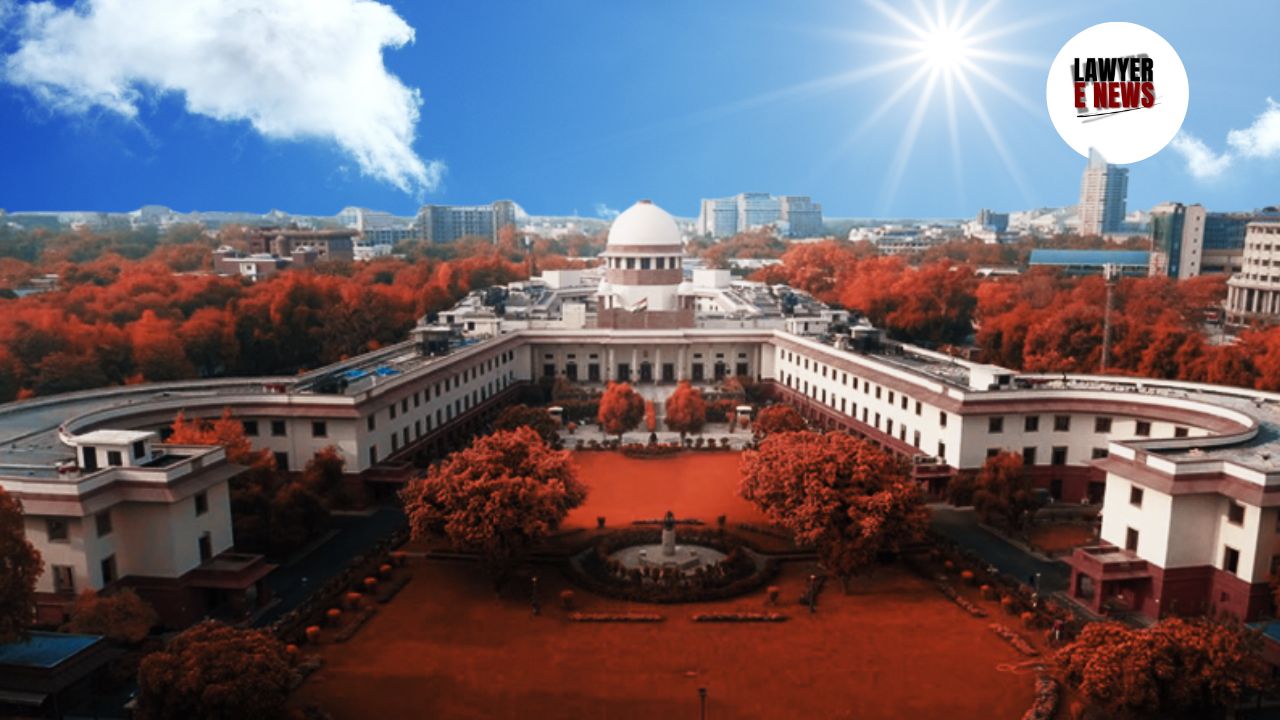-
by Admin
15 February 2026 2:36 AM



Supreme Court of India resolved a 22-year dispute involving land acquisition for the Bengaluru-Mysuru Infrastructure Corridor Project. The Court invoked its extraordinary powers under Article 142 of the Constitution to direct the Special Land Acquisition Officer (SLAO) to reassess compensation based on the market value of the land as of April 22, 2019, ensuring justice for landowners who had received no compensation since their lands were acquired in 2003.
A Two-Decade Legal Battle Over Land Acquisition
The dispute centered around residential plots acquired in 2003 under the Karnataka Industrial Areas Development Act (KIAD Act) for the ambitious Bengaluru-Mysuru Infrastructure Corridor Project. Although possession of the land was taken in 2005, no compensation was awarded for over 18 years due to bureaucratic delays and legal disputes. In 2019, the SLAO shifted the preliminary notification date from 2003 to 2011 to revise compensation based on updated market values.
A writ petition challenging this revised award was filed before the Karnataka High Court. The Single Judge quashed the 2019 award, ruling that the SLAO lacked jurisdiction to alter the notification date. The Division Bench later dismissed an appeal by the appellants as "premature," asserting that grievances could be raised after the SLAO issued a fresh award. Aggrieved by the prolonged injustice, the appellants approached the Supreme Court.
Legal Issues: Right to Property, Delays, and Jurisdiction
Can the SLAO alter the preliminary notification date for determining compensation?
The Supreme Court upheld that only constitutional courts under Articles 226 and 142 have the power to shift the notification date, not administrative officers like the SLAO.
**Does prolonged delay in compensation violate Article 300-A
of the Constitution, which guarantees the right to property?**
The Court held that the inordinate delay in awarding compensation violated Article 300-A, which protects individuals from being deprived of property without authority of law and just compensation.
Should the market value be based on the original 2003 notification date or a later date reflecting current market realities?
Given the 22-year delay and inflationary impact, the Court determined that compensating the landowners based on 2003 market value would be unjust and a travesty of justice.
Supreme Court's Observations
"Delay Mocked Justice": The bench, comprising Justices B.R. Gavai and Hima Kohli, emphasized that depriving landowners of compensation for over two decades violated their constitutional and human rights. It stated:
"If the compensation to be awarded at the market value as of the year 2003 is permitted, it would amount to permitting a travesty of justice and making the constitutional provisions under Article 300-A a mockery."
Right to Property as a Human Right: Referring to prior cases such as Tukaram Kana Joshi v. Maharashtra Industrial Development Corporation (2013) and Vidya Devi v. State of Himachal Pradesh (2020), the Court reiterated that the right to property is not only a constitutional right but also a human right. The Court added:"A welfare state governed by the rule of law cannot deprive its citizens of their property without paying adequate compensation in a timely manner."
Public Interest and Avoiding Additional Burden on the Exchequer: The Court recognized that if the project’s land acquisition was quashed due to delays, fresh notifications under the Right to Fair Compensation and Transparency in Land Acquisition Act, 2013, would substantially increase costs for the public exchequer. Balancing public interest with the rights of landowners, the Court opted to shift the notification date to April 2019.
Key Directions Issued by the Supreme Court
Recalculation of Compensation: The SLAO was directed to reassess the compensation based on the market value as of April 22, 2019.
Statutory Benefits: The appellants were granted all statutory benefits under the Land Acquisition Act, 1894.
Timelines for Compliance: The SLAO must issue the fresh award within two months from the date of the judgment.
Preservation of Rights: The appellants and respondents retain the right to challenge the revised award in appropriate forums if aggrieved.
Liberty to Seek Remedies: Respondent Nos. 6 and 7 (NICE and its sister concern NECE) may seek remedies to recover additional compensation costs from the State or KIADB under their agreements.
Judicial Precedent: Shifting Notification Dates to Ensure Justice
The Court relied on several precedents, including:
Ram Chand v. Union of India (1994): Compensation cannot be based on outdated market rates due to prolonged delays.
Barangore Jute Factory v. Competent Authority (2005): Compensation dates can be adjusted by courts to balance justice for landowners and public interest.
Tukaram Kana Joshi v. Maharashtra Industrial Development Corporation (2013): Compensation must reflect the value of property at the time of payment, not acquisition.
The Supreme Court’s ruling bridges the gap between procedural delays and substantive justice, recognizing the detrimental impact of prolonged inaction by state authorities. By recalculating compensation based on 2019 market values, the Court not only upheld the appellants’ constitutional rights but also avoided undue financial burdens on the public exchequer.
The case underscores the judiciary’s role in ensuring that the right to property remains a cornerstone of justice, even in the face of administrative lethargy.
Date of Decision: January 2, 2025
